What is Online Mastering?
Quick Answer
Online Mastering is an automated and algorithm-based mastering service now provided by various companies. Online Mastering services typically provide quick turnaround and a lower price, but at the expense of potential revisions, high-quality formats, full album mastering, and an ability to process a mix in a unique manner.
Online Mastering in Detail
When they first became available, automated online mastering services struck some fear into the hearts of many mastering engineers. Was it possible to be replaced by a computer and an algorithm?
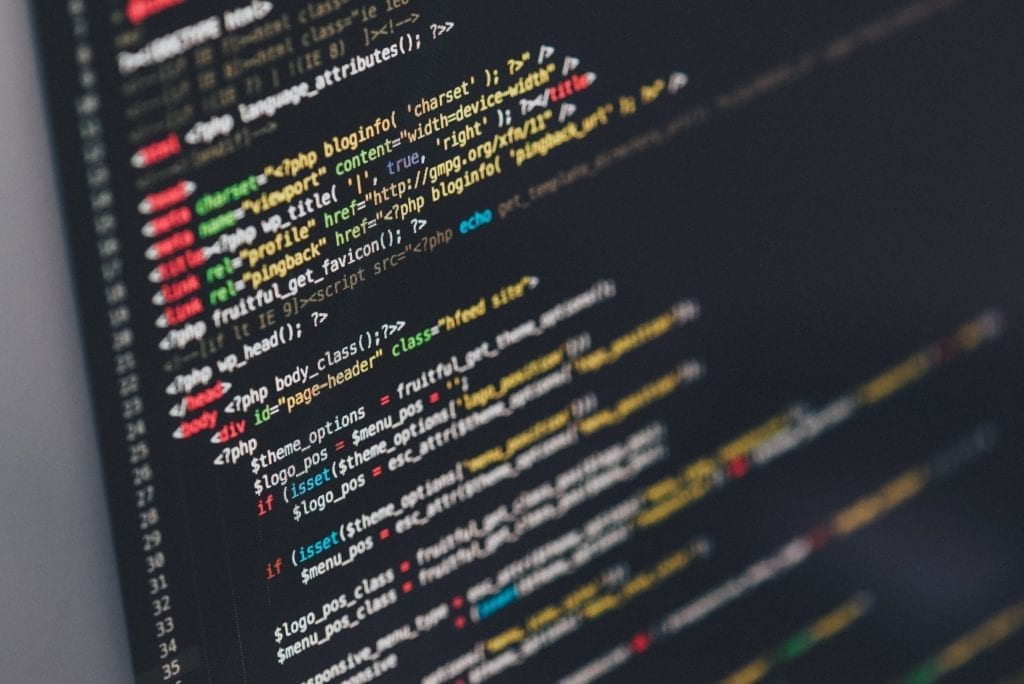
When first coming onto the music engineering scene, many engineers feared losing work to online mastering services.
With a little time and a better understanding of the services provided, this fear has subsided. This isn’t to say that online mastering isn’t an impressive technology that offers some very practical uses; however, there are some distinctions between traditional mastering and online mastering that may sway more serious musicians, engineers, and producers toward the former.

Many musicians still choose traditional mastering over algorithmic mastering.
Let’s take a look at what these distinctions are, and what circumstances may make one type of mastering more valuable than the other. First, let’s cover some definitions to better understand what online mastering is.
If at any point you’d like to hear your music professionally mastered by an engineer and with analog equipment, send it to us here:
We’ll master it for you, and send you a free mastered sample.
What is Algorithm-Based Audio Engineering?
Algorithm-Based Audio Engineering is the use of algorithm software-based detection and processing to alter digital audio. It is a series of “if, then” statements that recognize incoming information, and then make a series of decisions based on this information; this includes equalization, compression, and various other processing types.
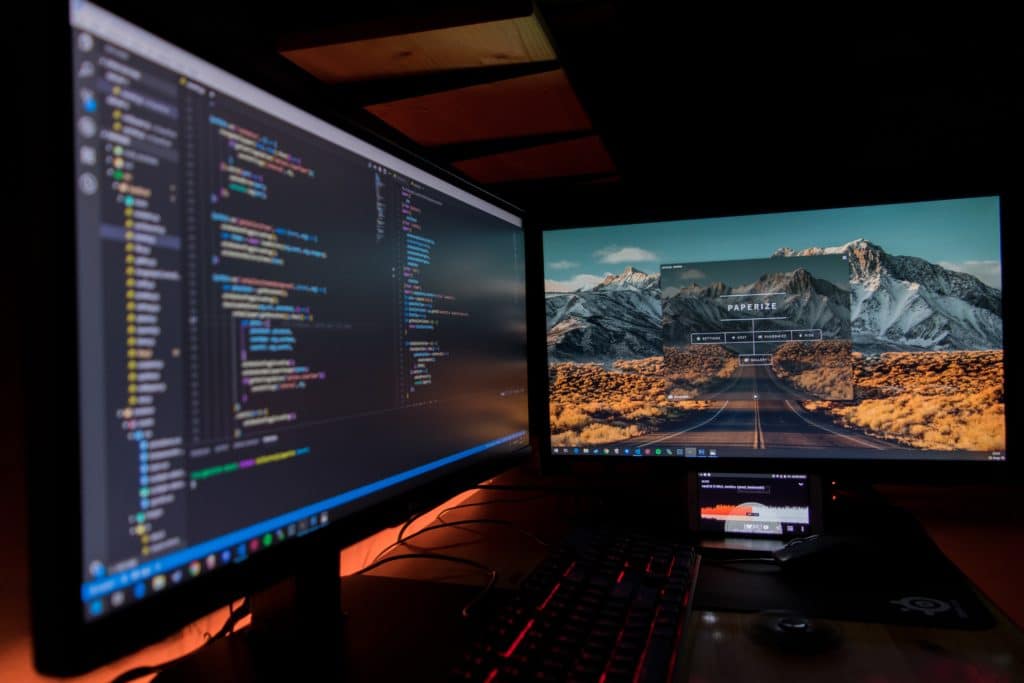
Algorithmic statements are comprised of "if, then" statements that determine what processing occurs.
What is Subscription-Based Mastering?
Subscription-Based Mastering is a service that use’s a monthly or yearly charge for it’s mastering services, instead of the typical “per song” charge implemented by most mastering engineers. Typically, online mastering services implement subscription-based mastering since their mastering service is automated and requires fewer resources.

Most online mastering services use subscription-based payment plans.
How Does Online Mastering Work?
Online Mastering uses algorithm-based mastering to provide users with a quick solution to their mastering needs. It works by the user uploading a song, which the program then reads, analyzes, and processes in a manner specific to the information it gathered from the upload.
Although the exact algorithm these services use is unknown, and varies from service to service, some notable bits of information these services would need to know about each upload is that upload’s relative loudness, stereo width, frequency response, and perhaps its dynamic range. With this information, an online mastering service could use its unique algorithm to determine what types of processing would be applied.
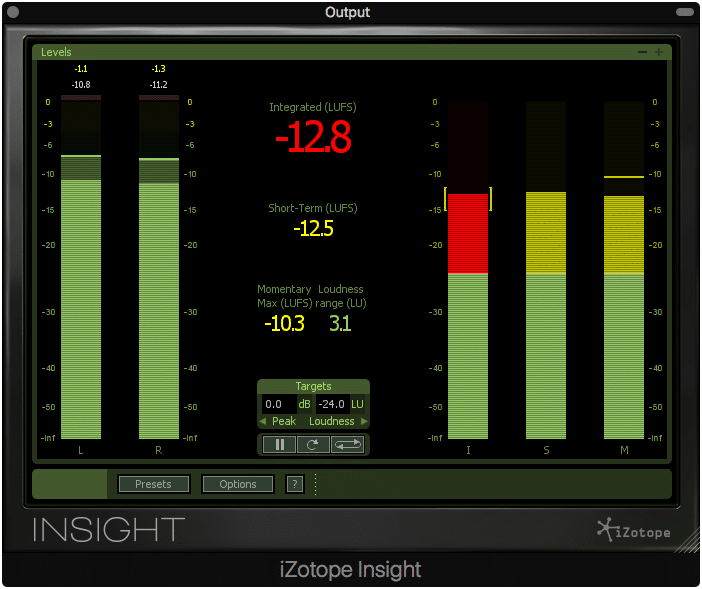
Online mastering measures the current loudness of an upload, among other metrics.
These types of processing include compression, equalization, stereo imaging, limiting, and perhaps harmonic distortion. The extent to which it applies these forms of processing would vary, but could be controlled to a certain extent by the artist or individual uploading the song.
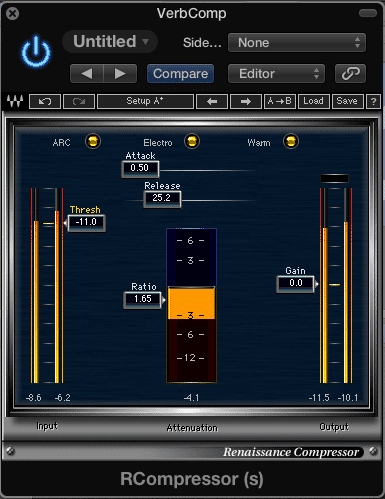
Compression is one of many processing types online mastering uses.
Once this processing was complete, the user could then download the file. Typically these files are an MP3, but some online mastering services allow for a 16-bit, 44.1kHz WAV file to be downloaded.
To just to recap, Online Mastering works by:
- Uploading the Song’s File to an Online Platform
- An Algorithm-Based Audio Engineering Tool Analyzing the uploaded file
- Applying processing, based both on information relative to the song, and unique to the mastering algorithm
- Providing a downloadable file, typically in a lossy format.
What an artist then does with this file can of course vary, but if the file was downloaded as a lossy file, it should be noted, that the song is not ready for distribution.

Online mastering services typically offer a lossy file download.
How Good Sounding is Online Mastering?
Online mastering sounds relatively good, and for some, it may be indiscernible from a typical mastering engineer’s work; however, the quality of a master is highly dependent upon the quality of the performance, tracking, editing, and mixing. If these factors have not been done well, an online master will not sound good.

Online mastering can sound good, but this depends on many factors.
Of course, it’s difficult to determine if online mastering truly sounds good - as this is up for interpretation. That being said, even the worst sounding master may sound good to some.
This isn’t to say that online mastering sounds bad, but it is to say that some listeners may be unable to tell the difference due to not having a trained ear, the correct equipment, or a treated listening environment. In fact, the reviews of online mastering services, based on sound quality alone vary greatly.

Listening environment and the technology used by listeners are just some factors that influence how good an online master sounds.
Some claim online mastering to sound good, whereas many claim it to sound poor, or about what you'd expect from an unpersonalized, algorithmic mastering service. Again, other factors play a role, but by in large, the opinions on online mastering services are mixed.
If you’d like to hear how you mix would sound mastered by a professional mastering engineer, one that uses solely analog equipment, send it to us here:
We’ll master it for you and send you a free mastered sample of your mix.If you were to try both an online mastering service, and our mastering service, you’d have an answer to how good an online master sounds, especially when compared to one mastered by an actual engineer.
What Online Mastering Doesn’t Offer
As we just discussed, the sound quality of an online master may vary and be up for interpretation - but, sound isn’t everything, especially when you consider the multitude of variables you’ll encounter when mastering a project. By asking yourself some important questions, you may notice that there are many things online mastering does not offer, which are just as important as the sound quality.
What to Consider when Having a Project Mastered
- Are you mastering an EP or Album?
- If so, how important is consistency amongst multiple tracks?
- Do you anticipate the need for revisions?
- What medium are you mastering for?
Let’s look at each of these points individually.
Are you mastering an EP or Album?
Online mastering services, at least as of yet, do not provide mastering for an entire album. That is to say, the algorithms they have in place are not coded to consider how multiple tracks will “play into” one another, or in other words, how the tracks will naturally progress from one song to the next.

Mastering a full EP or album changes how mastering is approached.
If you are planning on mastering a project longer than a single, you should seriously consider the fact that these algorithms cannot interpret more than one track at a time. This applies to you and your project if there is a theme or concept, if one track leads into the next, and if dynamics amongst tracks are important and add to your project’s musicality.
Odds are if you are creating more than a single, one of these will apply to you. If it does apply to you, you may quickly find that online mastering is not the best option for having your EP or album mastered.

If you're mastering an EP or album, online mastering may not be your best option.
If so, how Important is Consistency Amongst Multiple Tracks?
Although we just touched on this, another aspect to consider is loudness amongst tracks. An engineer can notice when loudnesses should match, and when they should vary slightly between tracks. He or she can adjust your mixes accordingly and then begin further processing.
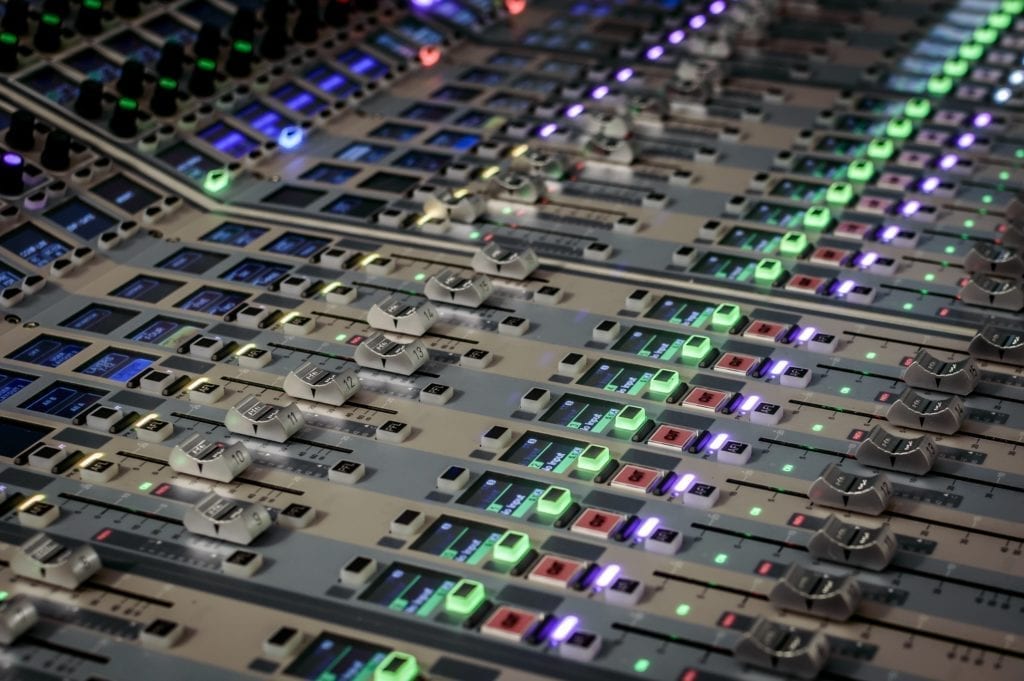
A mastering engineer can subtly adjust the loudness amongst multiple tracks to create cohesion within an album.
An algorithm based online mastering service does not have this ability. Although you may be able to change the loudness based on some available online mastering settings, you will not be able to dial in the exact or precise loudness that you want. As stated before, if you are having an EP or Album mastered, online mastering may not be your best option.
Do You Anticipate the Need for Revisions?
If yes, then online mastering may not be in your best interest. Although you can revise your mix, and then re-upload and master your music again online, as of writing this, you can not directly speak to a representative or change much about the algorithm to accommodate your needs.

Online mastering services cannot provide revisions based on your specific personal preferences. Actual mastering engineers can.
Granted, there are settings that are offered. These are based on genre, preferred loudness, and compression; however, these still do not treat your music as if it is individual from other tracks, or mixes.

Odds are online mastering will not be able to differentiate between your recordings and others. For individualistic mastering, you need to hire a mastering engineer.
To truly get a personalized mastering service, and to be able to ask for revisions based on how the first master differs from what you want, you’ll need to hire an actual mastering engineer.
What Medium are you Mastering For?
Are you mastering for digital or vinyl? If digital, is your release planned for CD or streaming? These are answers an online mastering service can not answer or accommodate for as of yet.

The medium for which you're mastering greatly affects the mastering process.
That being said, an immense amount of other technical factors need to be considered. For example, if you are mastering for streaming, which service? How will your audio most likely be normalized? Will the online mastering service leave enough room to protect your master from clipping during the encoding process?
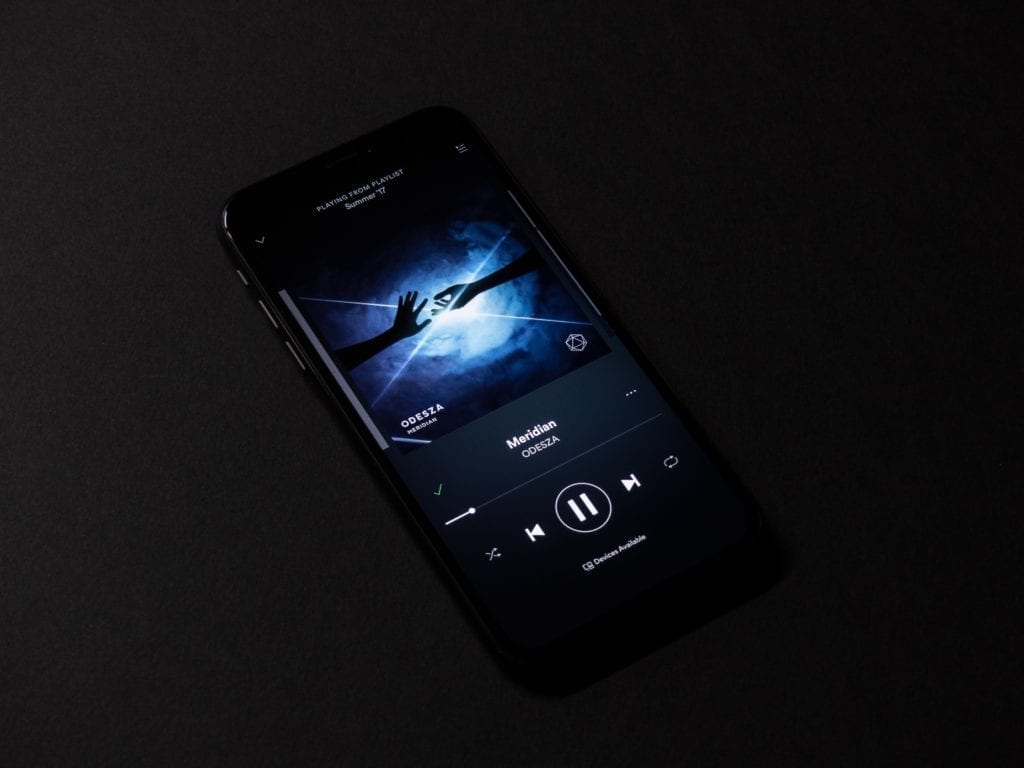
When mastering for streaming, leaving headroom for the conversion process is incredibly important.
The answer to this last question is: not always. Although online mastering services may account for varying amplitudes that arise during the encoding process, one test, in particular, seems to have shown otherwise.
If you’d like to learn more about mastering for streaming, take a look at our blog post on this exact topic:
It’s full of great information about mastering music for streaming services.
Testing Online Mastering for Clipping Distortion
When using a popular online mastering service, in this particular instance, a track mastered using their high-balance setting and downloaded as a 192kbps MP3 showed clipping distortion when measured with a true peak meter. Keep in mind that this track has not been altered in any way after processing was performed by this service, and was at a typical mix loudness with an acceptable dynamic range prior to mastering.
It can be seen that during the master’s playback, the true peak meter is clipping by .3 dBTP. Take a look below.
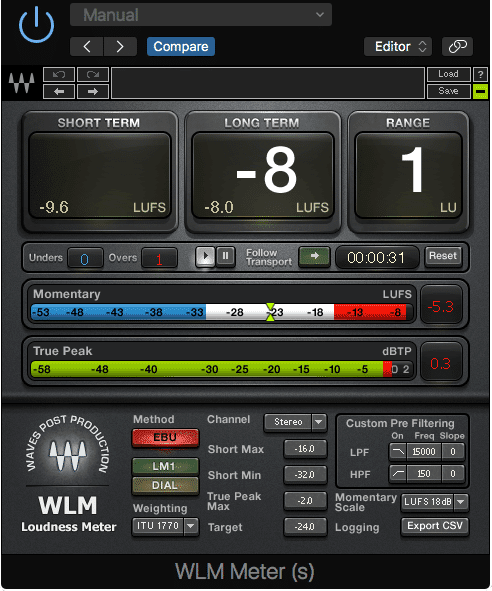
Notice the 0.3 dBTP over. This will cause clipping distortion.
Next, let’s see if this master peaks at all when running Apple’s “afclip” software. This will show what samples are clipping, when, and to what extent. Here is a screenshot of that test, which demonstrates inter-sample peaking resulting from this service's algorithm.
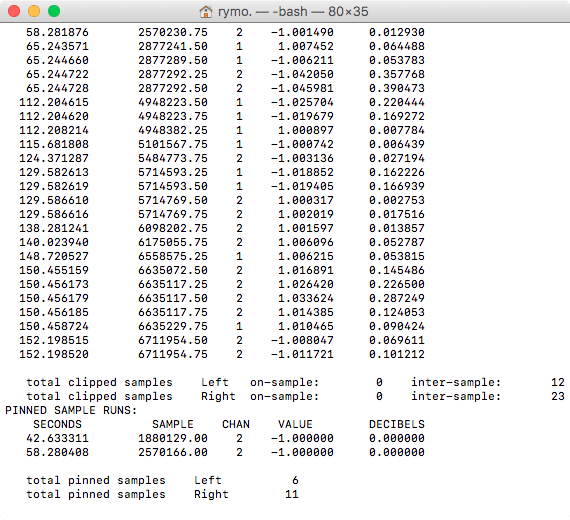
Apple's AFclip program detected significant clipping from this online master.
Lastly, let’s see the effect encoding would have on this master. By using the Apple plugin AURoundTripAAC, we can see how peaking will change once a track has been encoded.
Again, we’re using a popular online mastering service's high-balance master and will be encoding it to the iTune’s Plus Lossy format. Keep in mind then when encoding a lossy file into another lossy file, more artifacts will occur than when encoding from a PCM file to a lossy file; however, considering the original lossy file this online service provided contained clipping, one can not say for certain if improper encoding, or a master that was already clipping caused the issues that resulted from our next test.
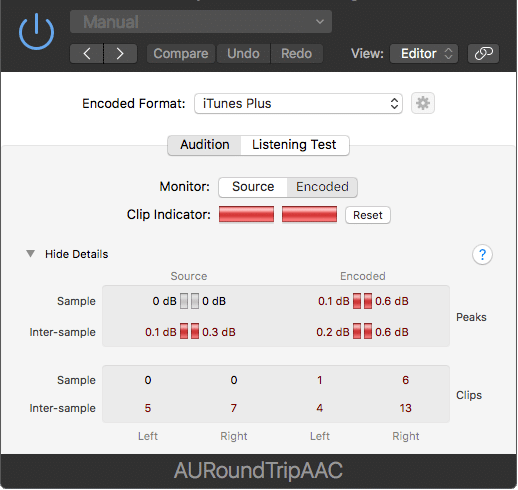
This clipping was made worse when encoded.
We can see that both inter-sample and sample peaking issues have been exacerbated once the track has been converted for streaming. This means that if you were to have your track mastered by this particular online mastering service, and then upload that track onto a streaming service, the encoding process may lead to clipping distortion, as its algorithm seemingly does not leave enough headroom to prevent clipping during the encoding process.
Of course, further testing is needed, as this is just one example using just one online mastering service. We can not reach a definitive conclusion as to the clipping and encoding precautions taken by this particular service, or other services - but in this example, we did record significant clipping distortion.
Out of curiosity we tested the same track, again mastered by this online mastering service, but using their Medium-Balance setting. This setting means that less processing occurred, and the mastered was exported at a lower integrated LUFS (loudness).
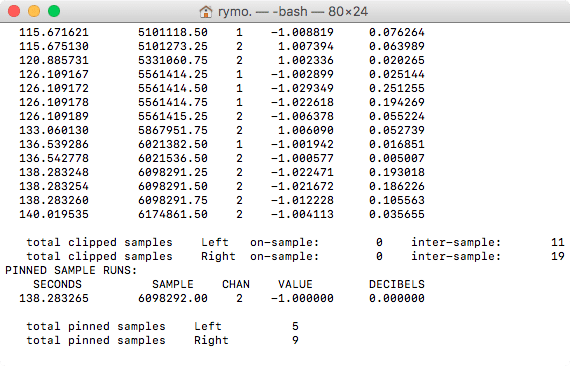
Even on quieter settings, this online mastering algorithm resulted in clipping distortion.
As expected, less clipping occurred than when testing the High-Balance setting master. With that said, there was still significant inter-sample clipping distortion. Below are the results.
Would you like to learn more about encoding, lossy files, and the tools used in this test?If so, take a look at this blog post:
It shows how to use these tools, as well as shows the benefits of certain encoding processes when compared to others.
What Happens If I Upload an MP3 for Distribution?
Often times, online mastering services only offer MP3’s or other lossy files for download, especially for their less expensive subscription plans. If you were to use this MP3 as your source file for distribution, the additional encoding would cause additional artifacts, clipping distortion, and aliasing.
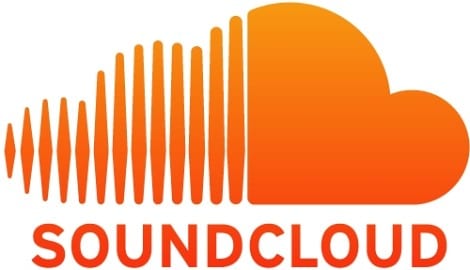
Uploading an MP3 will result in double encoding. This can exacerbate aliasing and distortion.
This is to say, your master would not sound good once it has been uploaded to a streaming service. Some may elect to convert their online mastered MP3 into a WAV or other PCM file; however, this will not solve the issue and may make it worse depending on the conversion service used.
Want to know more about various audio file types? Check out our top 10 list:
Is Online Mastering Worth It?
At this point, if you’ve read all of the potential issues with using online mastering in a professional setting, you may be wondering if using such a service is worth your time and money. In our opinion, the best way to use online mastering is as a quick master tool, used for previewing how your mix may sound when mastered.

Online mastering can help you determine how your mix might sound mastered.
Since mastering typically exacerbates flaws in a mix, or any recording, using online mastering will help to demonstrate this issues. In turn you can determine what may need to be addressed during mixing.
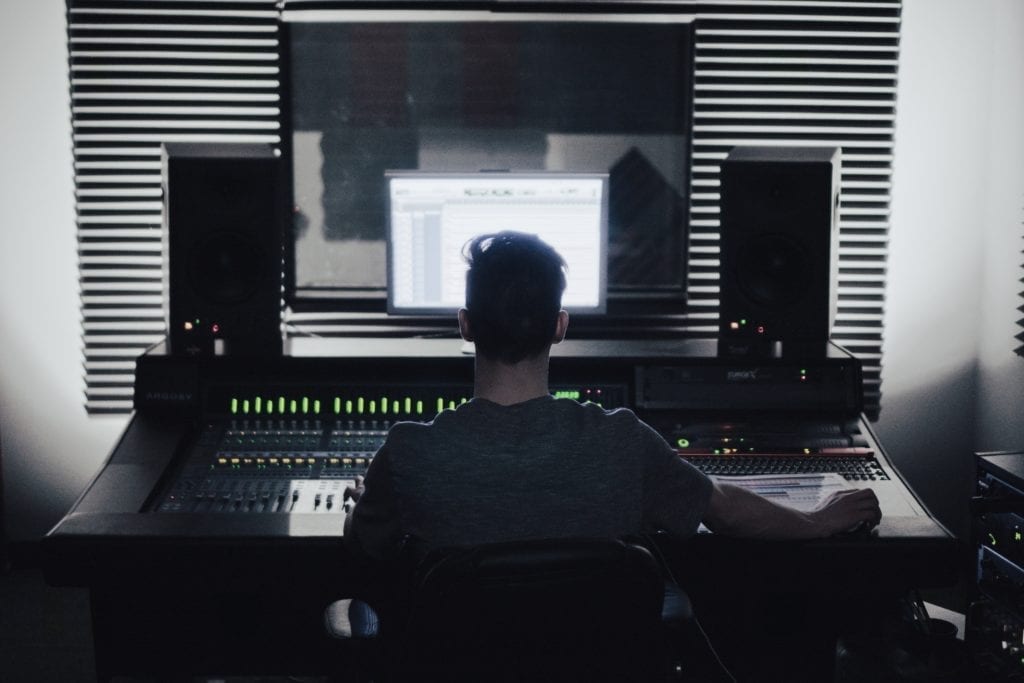
By using online mastering, you can better identify flaws in your mix.
Online mastering also offers a quick way to send artists an impressive sounding mix. If you’re a mixing engineer, and the artist with which you’re working would like to hear it mastered, you can send them a master you received from an online mastering service.

You can also use online mastering when you need a quick demo master to send to a client.
With that said, it may be best to suggest a mastering engineer if any of the issues addressed above may negative impact their project.
What Would Make Online Mastering Better?
Online Mastering would be made better if more options were made available, and the algorithm and analyzing system were made more complex. For example, if online mastering could measure unwanted clicks or pops, or somehow determine total harmonic distortion, this would make for better online mastering.
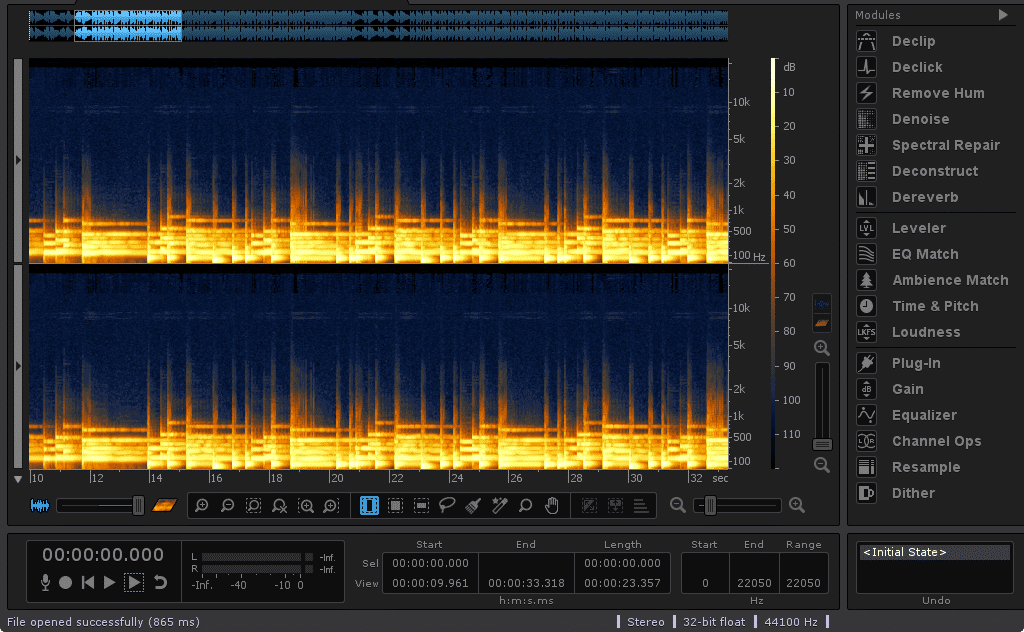
Currently, online mastering cannot measure and attenuate clicks and pops.
Furthermore, if online mastering provided advanced options when creating the master, this may serve as a substitute for the lack of individuality inherent to their services. This may also eliminate the need for revisions, making online mastering more accommodating for those using their services.
Lastly, to truly be a staple in the music industry, an online mastering company would need to offer WAV files, or an equivalent PCM file such as an AIFF, as it’s primary download option. If this were the case, the online service would never allow a user to download an MP3 or other lossy file without the source PCM file from which that lossy file was encoded.
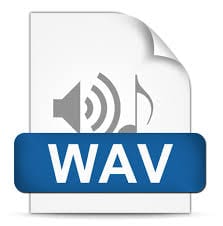
WAV files are the go-to uncompressed file of the audio world.
The reason being, some artists will not know the difference between a PCM and a lossy file. Any good mastering engineer will happily inform artists as to why this higher quality file is so important. But by allowing artists to download this lossy file, and by excluding them from the PCM files they need for distribution, online streaming services are creating a situation in which double encoded lossy files are the primary means by which listeners are experiencing online music.
This is cause for concern for any artist, engineer, or streaming services that want listeners to hear music the way it should be heard. There’s no reason why a significant amount of work should go into a project, only to have it nearly ruined by an improper uploading process.

Uploading your music to a streaming service as an MP3 will significantly reduce its fidelity.
The majority if not the entirety of mastering engineers would never allow this to occur with their masters, so why should online mastering services hold themselves to a lower standard?
Conclusion
Online mastering services are a useful tool for any engineer or artist looking to quickly and affordably hear their mix mastered. Online mastering definitely has some advantages, and sounds good if the mix and other aspects of the recording process were done properly.
That being said, online mastering has yet to reach the same standard masterings engineers hold themselves to. The algorithms used still don’t match the flexibility and complexity offered by traditional mastering engineers.
This isn’t to write off online mastering, as the technology is incredibly impressive, and a sign of how far both audio engineering, and digital processing have come. With that said, some growth is still needed before online mastering can be considered a viable option for artists and engineers looking to professionally master and distribute their song, EP or album.
If you’d like to hear your music professionally mastered, send it to us here:
We’ll master it for you and send you a free mastered sample.
Have you tried online master? If so, what were your impressions?




